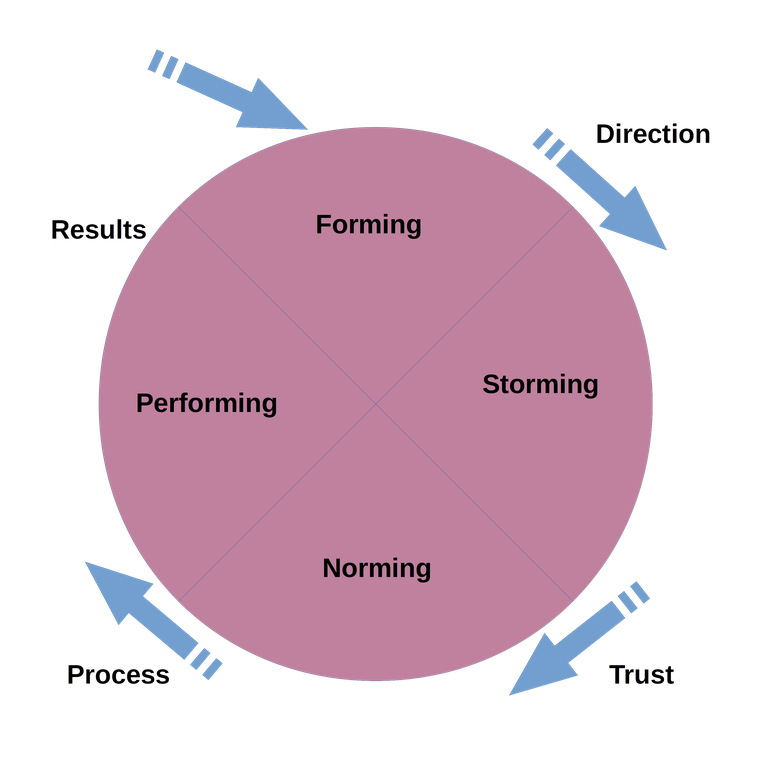RPG Theory Topic of the Week: Tuckman Small Group Dynamics Intro Part 1
New theory topic of the week begins today: Introduction to Tuckman's theories on small group formation, communication, & dynamics in relation to RPGs, Part 1.
Tiers 1-3 GM training schedule this week:
- Monday 6:30-10:30 pm
- Saturday 1-5 pm,
- Sunday 12:30-4:30 pm PST
Going to resume streaming Mondays on https://twitch.tv/rpgresearch with Saturday & Sunday remaining on https://youtube.com/rpgresearch

This is not linear or clearly delineated phases as usually diagrammed, it is generally highly iterative and context impacted.

| Forming | Storming | Norming | Performing | Adjourning | Reforming |
|
Participants are positive & polite. Some have anxiety because they do not fully understand what work the team will be performing. Others are simply excited about the tasks ahead. No prior history or views about the others such as "baggage" from the past that might hinder (or accelerate) the other phases. |
Participants in this phase begin to test and push boundaries that were in the formation portion of the spectra. This state is often where groups fail and/oor fall apart. Can lead to RPG group total party kill (TPK). |
Group gradually iterates in and out of this phase depending on different contexts. Participants begin to resolve their differences, appreciate each other's strengths, and develop more respect for the GM and/or group leader. PC Group generally has to discuss and verbally work out roles explicitly, and these roles may be very difference between circumstances (dungeon crawl trapped door, versus noble court audience), based on different skill sets and past performance in the group. |
The Player Character Party iterating into this spectra state, where all the hard work and overcoming of challenges, without friction, leads to achievements of group's goals. The participants reach a level of automaticity, "reading each other's mind", know what roles to fill, what level of performance to expect, and can do so almost magically like a well-oiled machine. Greatest opportunities for group-wide flow state experiences too. |
Session / Adventure / Campaign ends, or party dissolves (people's live change). Farewell rituals and processes. | Every time a group session resumes, a player is missing, a new player is added, or the group comes back together after a long hiatus, the group will have to go through variant of the Forming phase, but with the "baggage" of knowing each other and past experiences, which could be helpful or a hindrance through the other phases. |
Document Actions

